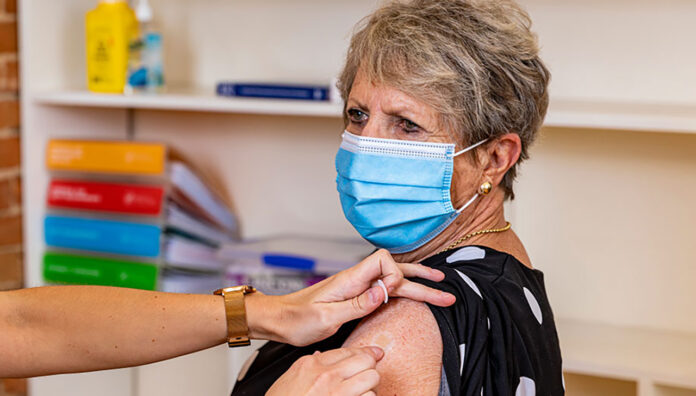As Tasmanians prepare to head to the polls this weekend, the state’s Liberal and Labor parties have each signalled their support for pharmacists.
Both parties have committed to allowing pharmacist immunisers to access the National Immunisation Program (NIP) for the first time.
Expanding pharmacist vaccinations in the state was one of four recommendations put forward by PSA in its 2020–21 pre-budget submission.
The state ‘has not kept pace with the rate of regulatory evolution seen around the rest of the country as the benefits and safety of pharmacist-administered vaccination has become apparent,’ according to the submission.
While the number of vaccines Tasmanian pharmacists can administer was recently broadened to include pertussis and measles, mumps and rubella (MMR), the state is still behind on access to NIP vaccines.
Victorian pharmacists have been able to access vaccines on the NIP since June 2016, and both the ACT and Western Australia have conducted pilot programs. And, by 2022, residents in New South Wales will be able to access the influenza vaccine in their local pharmacy via the NIP.
Ilwoo Park MPS, Pharmacist Manager at Oatlands Pharmacy in Tasmania, said access to the NIP would help improve access to vaccinations for her rural community.
She recently provided influenza vaccinations for two NIP-eligible patients, after the local GP was unable to provide the service and the patients, once the differences were described, provided informed consent to receive the non-preferred vaccine.
‘I told them they needed to go to the doctor’s surgery, but the doctor’s surgery had been too busy with COVID-19 vaccinations and hadn’t organised its flu shots yet,’ Ms Park told Australian Pharmacist.
The patients returned to Ms Park’s pharmacy because they were willing to pay and didn’t want to wait.
‘[Access to the NIP] would definitely reduce the doctors’ workload and improve access for our patients,’ Ms Park said.
The PSA Tasmania Branch President Ella van Tienen said local pharmacists should be able to offer NIP-funded vaccines to all patient groups, like colleagues interstate.
‘We have so many people presenting to community pharmacies for their vaccinations and it’s been counterproductive in the past to have to refer them back to their GP and miss a vaccination opportunity or to have to offer them the vaccine that is not the most appropriate one for them,’she told AP.
‘Pharmacist immunisers play such an important role in increasing the number of people who receive vaccinations, increasing the protection of the community against vaccine preventable diseases and reducing the burden on the healthcare system. The convenience of the community setting increases opportunistic vaccinations and reduces the cost to consumers and the healthcare system.’
The Liberal Party also pledged to ‘undertake a scope of practice review for local pharmacists, to consider what other services and support pharmacists can safely provide for the community’.
Dr van Tienen said PSA welcomed the opportunity for pharmacists to practice to their full potential, and said the PSA also called on the next Tasmanian government to commit $300,000 to fund a collaborative pharmacist-prescribing pilot in aged care facilities.
As 98% of residents in aged care facilities have at least one medicine-related problem, she said a trial between GPs and pharmacists would help reduce avoidable hospital admissions.
‘Pharmacists, with their medicines expertise, must be empowered to play a greater role in the aged care sector in order to achieve safe and best-possible use of medicines for older Tasmanians,’ she said.
‘The pilot project would develop the aged care collaborative prescribing framework through co-design with aged care providers, doctors, pharmacists and the Tasmanian Department of Health.’
After-hours funding
Meanwhile, Labor promised to provide $1 million per year to support 10 after-hours pharmacies across the state.
Expanding access to after-hours healthcare was the first recommendation in PSA’s Pre-Budget Submission.
With Tasmania’s emergency department presentations often at maximum capacity – including a large number of presentations for less-serious ailments, such as minor pain management – PSA argued that some of these could be appropriately managed with support and advice from community pharmacists.
‘The Tasmanian network of community pharmacies that trade outside of traditional retail hours are ideally positioned to support the management of many less-serious conditions and take the pressure off emergency departments by helping to reduce presentations,’ according to PSA’s submission.
‘The network of after-hours pharmacy services offer an alternative access point for minor ailments and conditions and support the after-hours health needs of the Tasmanian community.’
Labor health spokesperson Bastian Seidel said the funding would deliver extended hours to two pharmacies in each electorate, with the locations selected through an expression of interest.






 ‘We’re increasingly seeing incidents where alert fatigue has been identified as a contributing factor. It’s not that there wasn’t an alert in place, but that it was lost among the other alerts the clinician saw,’ Prof Baysari says.
‘We’re increasingly seeing incidents where alert fatigue has been identified as a contributing factor. It’s not that there wasn’t an alert in place, but that it was lost among the other alerts the clinician saw,’ Prof Baysari says.





